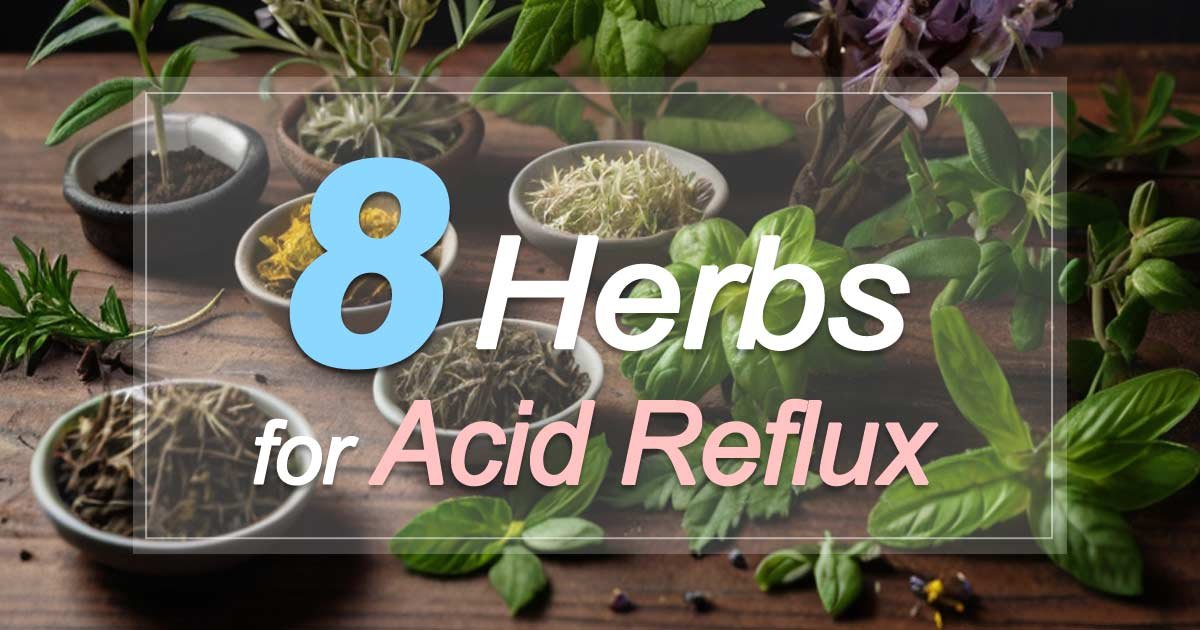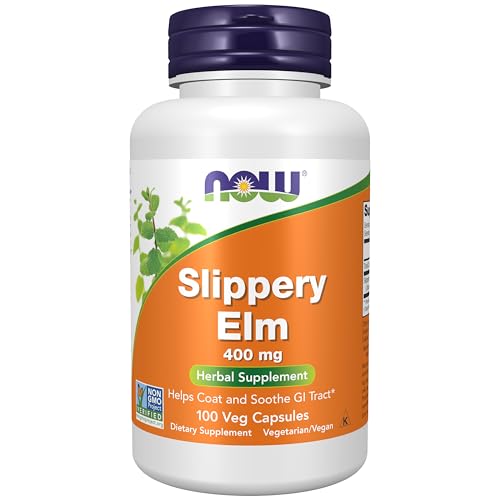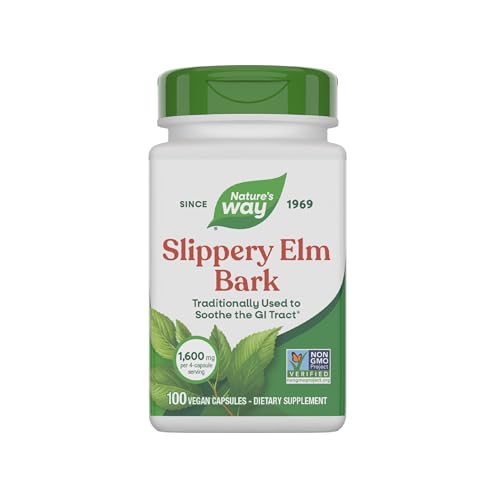Let me guess—you’ve tried the antacids. You’ve cut the coffee, the spicy food, even the glass of wine that used to feel like a warm hug at the end of a long day. And yet, here you are. That familiar burn is inching up your chest like a slow-moving volcano. Acid reflux. GERD (Gastroesophageal reflux disease). Whatever you want to call it, it’s a beast.
But what if I told you that some of the most powerful tools for calming that fiery discomfort aren’t hiding behind a pharmacy counter? They’re in the leaves, roots, and bark of plants that have been used for centuries, long before we had shelves full of chewable chalk tablets.
Yep. Let’s talk herbs. Real ones. Mushrooms too. Because nature’s medicine cabinet? It’s kind of magic.
Medicinal Herbs for GERD
Comparison: 8 Herbs for Acid Reflux and GERD
| Herb/Mushroom | Main Benefit | How It Works | Best Form | Caution |
|---|---|---|---|---|
| Slippery Elm | Soothes throat & esophagus | Forms protective mucilage | Powder, lozenges | May interfere with absorption of meds |
| Marshmallow Root | Coats & protects GI lining | Anti-inflammatory, mucilage | Cold infusion, capsules | Space out from other meds |
| Licorice Root (DGL) | Reduces inflammation | Stimulates mucus, soothes stomach | DGL tablets | Avoid non-DGL if hypertensive |
| Chamomile | Calms nerves & GI spasms | Reduces acid production | Tea, tincture | May cause allergic reaction in some |
| Ginger | Speeds digestion | Anti-inflammatory, anti-nausea | Tea, capsules | Too much may irritate |
| Fennel | Relieves bloating & gas | Relaxes GI muscles | Tea, seeds | Avoid high doses in pregnancy |
| Turmeric | Long-term gut healer | Anti-inflammatory (curcumin) | Tea, golden milk, capsules | Needs black pepper for absorption |
| Reishi Mushroom | Stress modulator | Adaptogenic, supports gut lining | Capsules, powder | May interact with immune meds |
1. Slippery Elm (Ulmus rubra): The Gentle Soother
Ever chew on the inside of a tree? Me neither. But slippery elm bark, when mixed with water, turns into this thick, gooey substance called mucilage. Sounds gross, I know—but that goo coats your esophagus like a cozy little blanket.
Think of it as aloe vera for your throat. It creates a barrier that can protect your mucous membranes from acid splash-back. I tried it as a tea during a particularly gnarly reflux spell one winter—it wasn’t exactly delicious, but within 20 minutes, the burning eased. Not gone, but dulled, like someone turned the volume down.
Best Form: Powdered bark mixed with warm water or taken in capsule form
Bonus: Also great for soothing a sore throat
2. Marshmallow Root (Althaea officinalis): The Unsung Hero
Nope, not the puffy white things in hot chocolate. Marshmallow root is another mucilage-producing herb (there’s that lovely word again). Like slippery elm, it coats and protects the lining of your esophagus and stomach.
But here’s the kicker—it may also help reduce inflammation. That’s a big deal because chronic acid reflux often comes with a side of low-grade inflammation that wears down your gut lining over time.
I like steeping dried marshmallow root in cold water overnight (a method called cold infusion). In the morning, you get this mild, earthy drink that feels oddly satisfying to sip. Like your belly just exhaled.
3. Licorice Root (Glycyrrhiza glabra): The Anti-Inflammatory Powerhouse
Okay, before you run screaming—this isn’t the black jellybean flavor. Real licorice root has a natural sweetness but it’s the compound glycyrrhizin that gives it anti-inflammatory mojo. It also boosts mucus production in the stomach, which can buffer acid.
But wait—too much glycyrrhizin can raise blood pressure. So most people opt for DGL licorice (that’s deglycyrrhizinated licorice), which keeps the soothing properties but ditches the risk.
I keep DGL tablets in my bag. They taste like earthy candy and I chew one about 20 minutes before a meal I know might trigger me—say, anything involving tomatoes.
4. Chamomile (Matricaria chamomilla): The Stress Reflux Connection
Let’s talk about that one time I scarfed down pad thai during a work meltdown and ended up curled in a ball on the couch, acid crawling up my chest like some kind of spicy revenge. Sound familiar?
That’s because stress is one of the sneakiest reflux triggers out there. And chamomile? It’s like a gentle whisper telling your body to chill out.
This daisy-like flower isn’t just for bedtime tea. Chamomile may help reduce acid secretion and calm inflammation in the gut. It’s also a mild anti-spasmodic, so it might ease that tight, clenching feeling in your upper abdomen.
Plus, it just smells like peace.
5. Ginger (Zingiber officinale): The Fiery Peacemaker
Ginger is weird. It’s spicy, but it fights fire with fire. It’s known to support digestion, speed up gastric emptying (so food doesn’t linger in your stomach and fuel acid reflux), and reduce nausea.
But go easy. A little ginger tea goes a long way—too much might backfire and irritate your gut.
I slice a few coins of fresh ginger and steep them in hot water with a bit of raw honey. That stuff has gotten me through holidays, airplane food, and questionable street tacos.
6. Fennel (Foeniculum vulgare): Crunchy Relief
Ever notice how some restaurants in India offer fennel seeds after a meal? They’re not just being quaint. Fennel contains compounds like anethole that may help relax the muscles in your GI tract and reduce bloating and gas—which can contribute to reflux.
When my reflux feels tied to gassy bloating (hello, beans), chewing on a few fennel seeds actually helps. I also like fennel tea after dinner. It’s like your gut exhaling.
7. Turmeric (Curcuma longa): The Golden Guardian
Turmeric isn’t a frontline reflux herb—it’s more of a long-game healer. Thanks to curcumin, its main active compound, turmeric helps fight inflammation and may protect the gut lining over time.
In Ayurveda, turmeric is basically the duct tape of healing. You’ve got inflammation? Slather on some turmeric. Gut issues? Add it to your food. Sore joints? Same thing.
I like it blended into “golden milk” with coconut milk, black pepper (for absorption), and a smidge of maple syrup. Cozy and healing.
8. Reishi Mushroom (Ganoderma lucidum): The Gut-Brain Hero
Alright, let’s throw in one mushroom for good measure. Reishi isn’t just for immunity—it’s an adaptogen, which means it helps your body handle stress better. And since stress can mess with digestion, slow motility, and mess with acid production… well, reishi deserves a seat at the table.
There’s some early evidence that reishi may support gut integrity and reduce inflammation. I take it in capsule form—mostly for stress, but I swear my reflux acts up less when I’m consistent with it.
A Quick Word on How to Use These Herbs
Most of these herbs come in multiple forms—tea, tincture, capsules, or powders. Everyone’s body is different, and what works for one person may not for another. It’s all about experimenting, slowly, and watching how your body responds.
Also, just because it’s natural doesn’t mean it’s harmless. Talk to your doctor or a clinical herbalist, especially if you’re on medications (particularly blood pressure or blood thinning meds).
And one last thing: herbs work best when paired with smart habits. Eat slowly. Stay upright after meals. Ditch tight clothes. Your stomach needs space to breathe, too.
Best Selling Supplements for GERD
Article Sources
At AncientHerbsWisdom, our content relies on reputable sources, including peer-reviewed studies, to substantiate the information presented in our articles. Our primary objective is to ensure our content is thoroughly fact-checked, maintaining a commitment to accuracy, reliability, and trustworthiness.
- Zhang, X. et al. Herbal medicines for gastroesophageal reflux disease: a review of current evidence. J Ethnopharmacol. 2020;249:112414.
- Mayo Clinic. Slippery elm. https://www.mayoclinic.org
- National Center for Complementary and Integrative Health (NCCIH). Licorice Root. https://www.nccih.nih.gov
- Borrelli, F. et al. Effect of Chamomile on Gastrointestinal Disorders. Phytomedicine. 2006;13(1-2):21-26.
- White, B. Ginger: An overview. Am Fam Physician. 2007;75(11):1689-91.
- Singleton, V. L. et al. Potential Anti-ulcerogenic Effects of Fennel. Phytother Res. 2011;25(2):186-192.
- Hewlings, S. J., Kalman, D. S. Curcumin: A Review of Its Effects on Human Health. Foods. 2017;6(10):92.
- Zaidman, B. Z. et al. Medicinal mushroom modulators of molecular targets as cancer therapeutics. Appl Microbiol Biotechnol. 2005;67(4):453-68.
- Children and Plant-Based Herbal Use Safety: Tradition and Common Sense - January 25, 2026
- Sustainability in Vegan Herbal Sourcing: Why Popular Plants Are at Risk - January 25, 2026
- Vegan Herbal Rituals: Simple Daily Practices Rooted in Tradition - January 24, 2026













